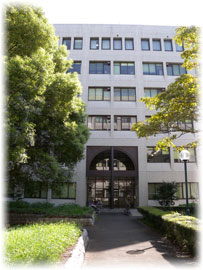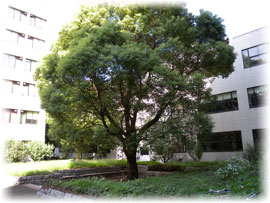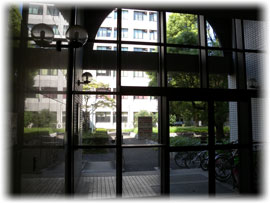ABOUT THE DEPARTMENT

The Department of Advanced Social and International Studies, Graduate School of Arts and Sciences was founded in 1996. Its establishment was based upon the reorganization and merger of two previously separate departments: the Department of International Relations and the Department of Interdisciplinary Social Sciences (currently called the Course in International Relations and the Course in Interdisciplinary Social Sciences, respectively).
The first of the two departments – the Department of International Relations – was established in 1953, as part of the University of Tokyo’s Graduate School of Social Science. It was later transferred to the Graduate School of Arts and Sciences in 1983. For more than half a century since its establishment, the Department of International Relations has served prominent roles in both research and education in the field of International Relations in Japan. On the other hand, the department of Interdisciplinary Social Sciences was established in 1978, which marks the first attempt in Japan to institutionalize this novel discipline. In 1983, the department joined the Graduated School of Arts and Sciences. Since then, the department has been pioneering the study of Interdisciplinary Social Sciences in Japan.
THE AIMS AND CHARACTERISTICS

The main aim of the Department of Advanced Social and International Studies is to educate professional researchers who are well-equipped to face the challenges of the current times, as well as to contribute to society at large through research. Our faculty and staff are committed to the education of students into intellects with the professional skills and knowledge required to excel in international society. Our faculty also exhibits tireless commitment to help our students develop their full potential to serve in a diverse range of occupations. As a result, graduating students are placed as researchers in many leading universities and research institutions, as well as in non-academic institutions such as multi-national corporations, public sectors, NGOs and private think-tanks.
Courses offered in the department have the following characteristics:
- Our courses are designed to expand the frontier of research in International Relations and Interdisciplinary Social Science. The department encourages students to make use of a wide range of analytical tools to identify and clarify the challenges which Japan and the international society face in the 21st century.
- Research and education are focused extensively on public policy and international cooperation. Students are encouraged to approach major themes such as economic development; environmental protection and human rights from a global viewpoint.
- By inviting newly graduating students, full-time and part-time workers, both nationally and internationally, the department provides with them an opportunity to interact in an intellectually stimulating academic environment.
FIELDS OF STUDY

The department focuses on research and teaching in the following four fields.
- International Cooperation: Courses in this field develop theories and explore means that facilitate international cooperation that is multi-dimensional in nature. Research and teaching cover varieties of contemporary issues ranging from national security, conservation of the environment, conservation of cultural heritage, the dissemination of information, and to economic conflicts of international economies.
- International Relations: Courses in International Relations aim to analyze the international society from perspectives of its formation, expansion, development, and its changes over time. In addition, this field attempts to explore and establish viable and promising research strategies that allow us to better understand the formation of international society.
- Public Policy: Courses in this field study cotemporary society that is characterized by layers of ever more rapidly changing relationships between nation and the local society, law and economics, the market and organizations, and the family and individual. The courses shed lights on the structure and characteristics that may exist in these relationships from both public and international perspectives. While one course may investigate how involved parties directly interact to resolve conflicts they are facing, another course may examine processes through which regulations are institutionalized in the presence of conflict of interests among involved parties. Through these courses this field aims to explore ideal nature of public policies of the present time.
- Interdisciplinary Social Sciences: This field approaches various problems which human society in its transition now faces. Examples include problems related to technology; natural resources; the ecological environment; and growth of the human population. Some topics of interest include the changes in the role of the nation-state as it is subject to multi-faceted environmental constraints such as those mentioned above; conflicts between different nationalities and their cultures; the implications of new forms of civil awareness; and re-definitions of the freedom and identity of the individual. By adopting a wide range of academic methodologies, both contemporary and historical aspects of the above-mentioned issues, as well as possible methods to resolve existing problems will be taught and analyzed.
